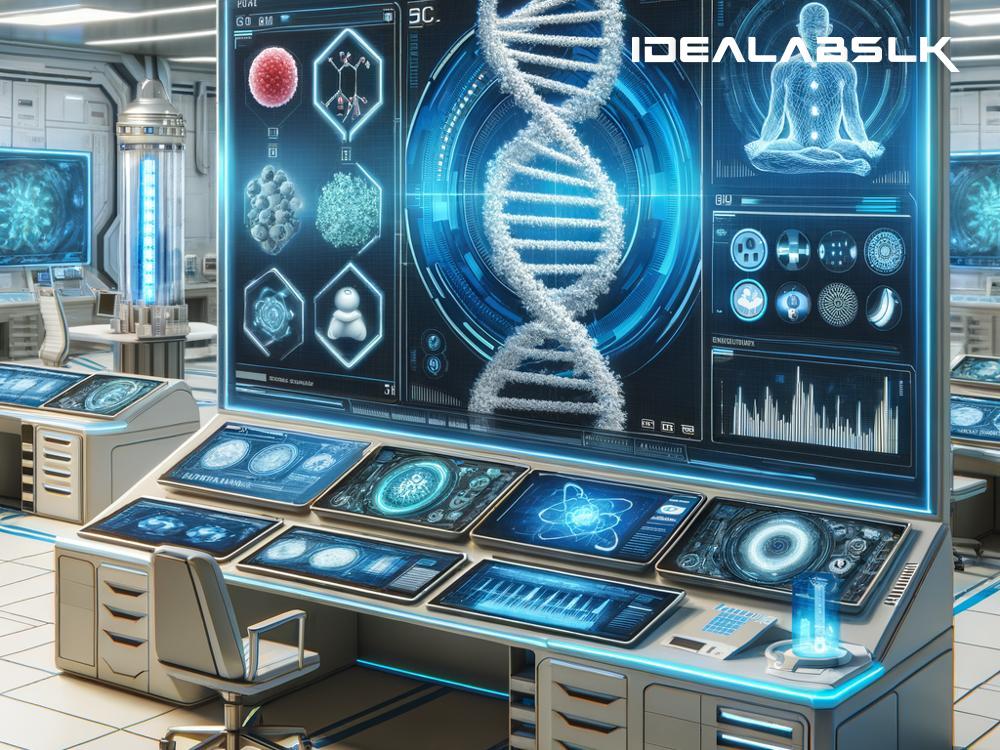The Future of Healing: How AI is Shaping Precision Medicine to Treat You Uniquely
Imagine walking into a doctor's office where the treatment you receive isn't just based on general studies or broad medical practices but is tailored precisely for you. This is not a scene from a distant future science fiction movie. It's rapidly becoming the reality of healthcare today, thanks to the integration of Artificial Intelligence (AI) in precision medicine.
What is Precision Medicine?
At its core, precision medicine is about customization. It's the approach of customizing medical care and treatment to the individual characteristics of each patient, considering factors like their genetic makeup, environment, and lifestyle. It moves away from the one-size-fits-all mentality, aiming instead to target the right treatments to the right patients at the right time. But how do we achieve this level of personalization at scale? Enter AI.
AI: The Engine behind Precision Medicine
Artificial Intelligence, a field of computer science that mimics human intelligence processes through algorithms and software, has been a game-changer in many industries, including healthcare. Its capabilities in data analysis, pattern recognition, and learning and adapting over time make it a perfect fit for precision medicine. Here's a look at how AI impacts this personalized healthcare approach:
1. Understanding Your Genetic Blueprint
Every individual carries a unique genetic code that can tell us a lot about potential health risks and how one might respond to different treatments. However, sifting through this genetic information manually to find relevant data points is like finding needles in a gigantic haystack. AI algorithms excel at analyzing vast amounts of genetic data quickly, identifying mutations and variations that could indicate susceptibility to certain diseases or conditions. By understanding your genetic blueprint, doctors can predict diseases you might be at risk for and take preventative steps or tailor treatments to your genetic makeup.
2. Tailored Treatment Plans
Once a disease is diagnosed, the next challenge is deciding on the best course of treatment. Here again, AI can analyze data from thousands of patients, including information on how they responded to various treatments, to predict what might work best for you. It considers factors unique to you, such as your genetics, environment, and even lifestyle choices, to recommend personalized treatment plans. This means the medication, dosage, and therapy chosen for you have a higher chance of success and lower risk of side effects.
3. Continuous Monitoring and Adjustment
Healthcare doesn't stop at prescribing treatment. Monitoring how you respond to treatment is crucial, and this is another area where AI shines. Wearable devices and sensors can collect health data in real-time, which AI systems can analyze to track your progress. If the data shows that your body isn't responding as expected, AI can alert your doctor to adjust your treatment plan, making the process dynamic and proactive.
4. Predictive Health Insights
Beyond treating existing conditions, AI in precision medicine can offer predictive insights, forecasting potential health issues before they arise. By analyzing trends and patterns in your health data over time, AI can predict the likelihood of developing certain conditions. This allows for early interventions that can prevent diseases from developing or progressing.
The Human Touch in AI-Driven Precision Medicine
While the prospects of AI in precision medicine are indeed thrilling, it's essential to remember the human element in healthcare. AI supports and enhances the decision-making process, but the final decisions should always involve healthcare professionals who understand the patient's unique health context. Moreover, the relationship between patients and doctors, built on trust and communication, remains irreplaceable by technology.
Embracing the Future
The future of healthcare is personalized, and AI is the cornerstone of this evolution. By tailoring treatments to individual patients, we can anticipate more effective healthcare outcomes, reduced side effects, and overall, a system that puts the patient's unique needs at the forefront. As we continue to advance in our understanding and application of AI in precision medicine, we move closer to a world where healthcare is not just about treating diseases but about fostering overall well-being tailored to every individual.
In the end, the most exciting aspect of AI in precision medicine is its potential to make healthcare deeply personal. By leveraging technology, we're not just treating illnesses; we're caring for individuals, ensuring that each person receives the most effective care designed just for them. That's a future worth striving for.

